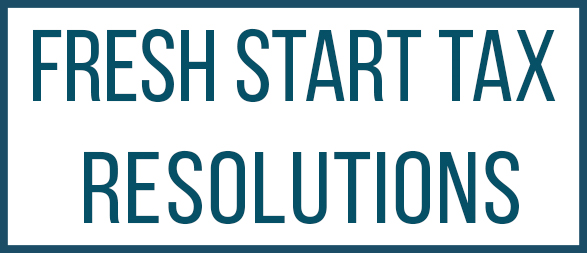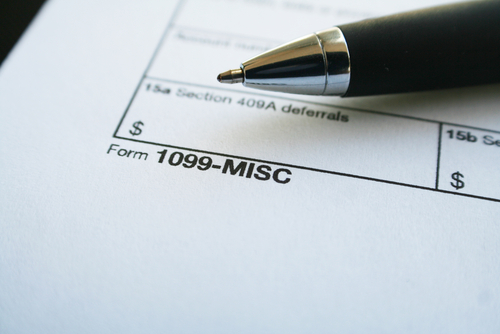The IRS has rules and systems in place to ensure that all of your earnings are reported. It is best to report all of your earnings on your tax return. Estimating the income is acceptable in some cases. If you don’t include a 1099-MISC on your tax return, you risk an audit and monetary penalties. The question then becomes will the IRS catch a missing 1099 form?
Your clients must show proof of their expenses, which includes your pay.
Your clients, like you, must be prepared to prove all of their expenses to the IRS. Gathering all of your information via a W-9 form would be the first step in documenting those expenses. Your TIN is included on this form (taxpayer identification number). For your business, this can be either your SSN or EIN.
Your client will use this information to send a 1099-MISC to you and the IRS. Although a client must have paid you at least $600 in the previous year to be required to file this form, some businesses may issue one regardless of the amount. Companies that are required to issue 1099-MISC forms are likely to comply because failure to do so will result in penalties.
If your clients don’t send you a 1099-MISC, it doesn’t mean they didn’t send one to the IRS.
The IRS has a system in place to verify your earnings.
Prior to 2016, businesses had until March 31st to file information statements with the IRS (1099-MISC, W-2, etc.). The problem arose when taxpayers could file their tax returns as early as late January and the IRS would have no documents against which to verify the income on the tax return. In 2016, the deadline was shifted. Information statements must now be submitted by January 31st, the same date that freelancers must receive their 1099-MISC.
Because the IRS now has this information earlier in the year, they can use their matching system to more efficiently verify your reported income and pay reported by your clients. Remember that your TIN (SSN or EIN) appears on the 1099 you send to the IRS, which is the same number you use to file your tax return. The matching system determines how much income for that TIN should be reported.
Because the IRS received the same forms you did at the same time, it’s much more difficult to under-report your income. This was, in fact, the primary goal of the date change. Some taxpayers took advantage of the information reporting lapse to claim a lower tax liability or a larger refund than they were due.
The IRS has years to audit tax returns
A common misunderstanding is that if you don’t hear from the IRS within a reasonable period of time after filing your tax return (such as a few months or after receiving a tax refund), you’re out of trouble. That isn’t always the case, though. Some taxpayers may be fortunate, but the IRS generally has three years to audit your tax return from the date you filed or the due date of the return, whichever comes first. So, if you make it through the first three years, you should be fine, right?
Well, that depends on another IRS rule, which states that the IRS has six years to audit your tax return if you under-report your earnings by more than 25%. Let’s pretend that the 1099-MISC was only a small part of your freelancing earnings. As a result, the six-year rule does not apply, and it has now been three years. Until you receive an IRS audit notice or letter informing you of the missing income, you’re in the clear.
That’s because there’s one more thing to remember. There is no time limit on auditing your tax return if the IRS determines you filed a fraudulent tax return (i.e. intentionally not reporting your 1099-MISC).
In other words, the IRS has plenty of time to find that unreported income.
Answering the Question Will The IRS catch a Missing 1099?
The Answer? Yes! They have a good chance of catching it.
To begin, the IRS imposes a slew of requirements that businesses must adhere to in order to avoid financial penalties for late 1099s. Second, their matching system compares your reported earnings to the data supplied by your clients. Finally, the time limit for auditing your tax return can range from three years to indefinite. If you haven’t received a 1099-MISC, it’s best to set aside money for your taxes and report your freelance income based on your records.
If any 1099s received differ from those reported, file an amendment to your tax return if necessary. Make sure your records and actual amounts are comparable, if not identical. If you underreport your income, you may face penalties.
About Fresh Start Tax Resolution Services
When it comes to Tax Resolution and settling debts with government institutions, you can’t afford to mess around – but nor can you afford to get in bed with “sales rooms” masquerading as a professional tax office. There’s simply too much at stake. And there are too many landmines along the path.
My name is Robert Kirnard. I am a licensed CPA, and able to represent you in front of the IRS. I have been doing so on behalf of clients (both local and national) now for years.
But what you DON’T need is to be bombarded by ruthless sales pitches and overbearing junk mail simply because your situation was picked up by some database somewhere, and you were targeted as a “hot lead”. Yes, this is how these operations can afford to advertise on national television and radio. They have a sales system, and they work it. Very hard.
Here’s the dirty secret of the national tax debt resolution industry: Almost all of your contact will be with a commissioned salesperson. A closer. And their mission is to close YOU.


